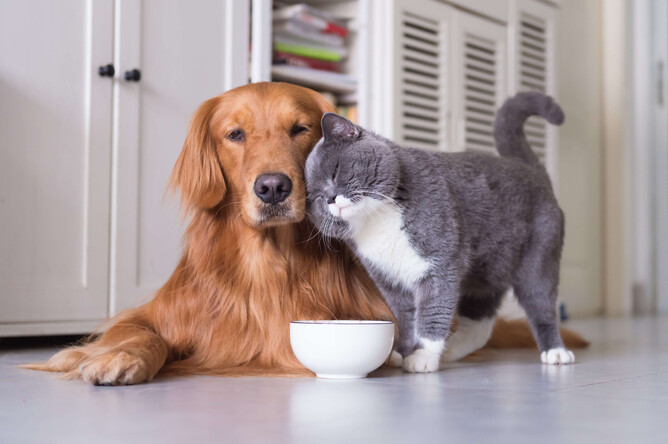Gastroenteritis is inflammation of the gastrointestinal tract (stomach and the intestines) and is a common condition in cats and dogs.
There are many factors that can lead to the condition, including:
Changes in intestinal flora
A food allergy or sensitivity
Gastrointestinal (GI) ulcers
Foreign bodies
Intestinal obstruction
Genetic disease or predisposition
Ingestion of spoiled or raw foods, or of non-food items
Viruses (parvovirus, distemper, etc.)
Intestinal parasites
GI cancers
Signs to look out for
Two of the most common signs of gastroenteritis are vomiting and diarrhoea.
However, sometimes, dogs and cats with gastrointestinal issues can appear normal, except for changes in their bathroom habits. Whether it is a shift in frequency, location, or the consistency of bowel movements, these subtle signs can indicate gastroenteritis.
Signs that pet owners should be aware of:
Excessive vomiting/unable to keep food or water down
Dehydration
Blood in vomit or faeces
Hypersalivating as a symptom of nausea
Abdominal pain
Listlessness, lethargy, acting quieter than usual
Loss of appetite
It is important to seek veterinary advice if your pet is exhibiting any of these signs, especially if they are young, elderly, or a small breed prone to dehydration.
Most cases of acute gastroenteritis improve rapidly after rehydration. Early recognition and treatment should see your pet returning to a normal healthy state as quickly as possible.

